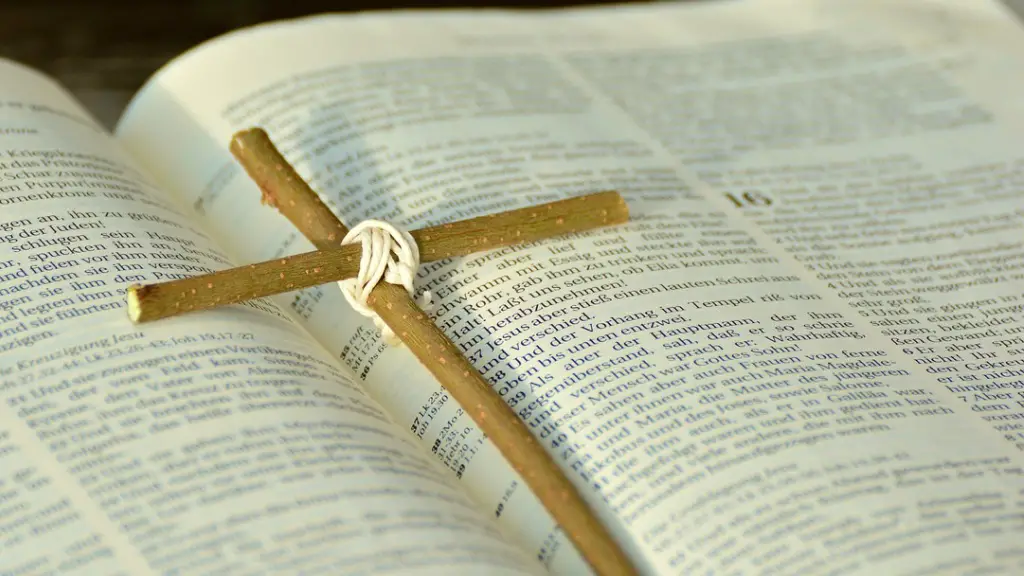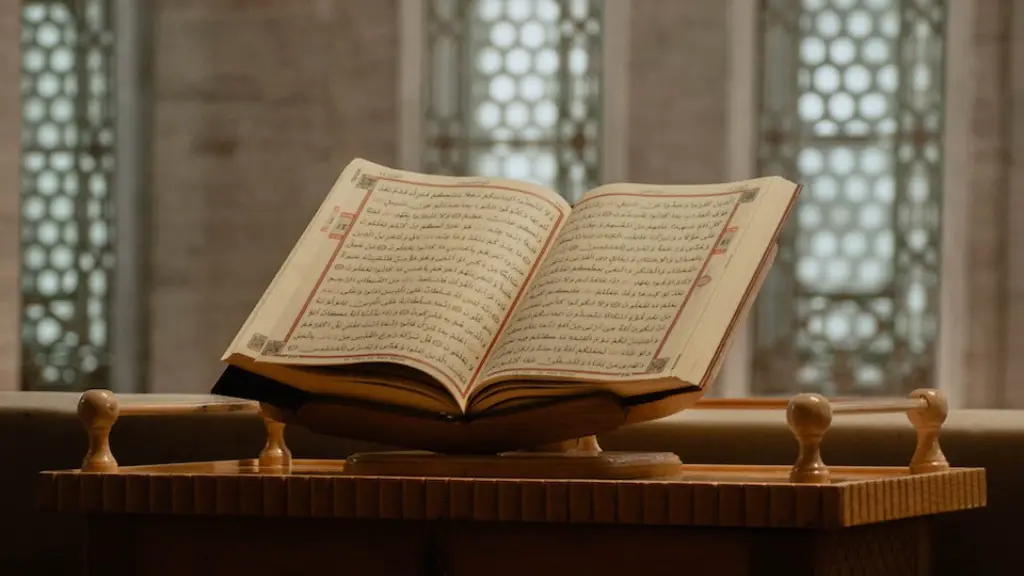The Pagan Origins of Christmas
The origins of Christmas are often a topic of debate as many cultures have influenced the festivities that come with the season. According to many experts, Christmas was originally a pagan holiday, and there is no clear indication in the Bible of the holiday being celebrated. Though there are some practices associated with Christmas that have been adopted over the years that do have their roots in biblical times. It’s important to look at the history of Christmas and to see what aspects have pagan and what have Christian roots.
Christmas is thought to have originally been a winter solstice festival, coming from festivals such as Saturnalia and Yule in Ancient Rome and Scandinavia. The winter solstice is the day when the sun is farthest south in the sky, and many cultures celebrated the returning of the sun afterwards. This midwinter festival often included feasts, merrymaking, and the exchange of gifts.
In more recent centuries, Christmas has been widely celebrated in Europe, although it has its origins in pagan traditions. As Christianity spread, the pagan holidays were slowly replaced with Christian ones. For example, many of the customs associated with Christmas, such as the tree, the star, and the Santa Claus, have their roots in pre-Christian culture rather than in Christianity.
The Bible does not mention Christmas, and there are no clues in the Bible that suggest it is a Christian holiday. Santa Claus, likely has its roots in the figure of St. Nicholas, though the present-giving aspect of the holiday has its origins in the pre-Christian customs associated with the winter solstice. The origin of Christmas as a holiday is somewhat uncertain, though many Christian scholars believe that it was adapted over time from earlier pagan traditions.
Despite its pagan origins, Christmas has been embraced by many Christians today and is celebrated as the birth of Jesus. However, the bible does not clearly state the date of Jesus’ birth. Despite this, a majority of Christians have embraced the pagan winter holiday as a celebration of Jesus’ birth. The bible also hasn’t indicated that Christmas is a day of worship, so how much Christmas is celebrated in this way is left to each Christian’s discretion.
Many Christians do not even celebrate the holiday in a religious way at all, choosing instead to focus more on the secular aspects, such as exchanging gifts and decorating trees. As a result, The holiday of Christmas is celebrated by many people around the world in various ways.
The Significance of Jesus’s Birth
Despite its pagan origins, the Bible does hold up the celebration of Jesus’s birth as something of spiritual and historical significance. There are many Bible verses that talk about God sending his son to save us from our sins and to bring us back to God. Whether or not Jesus was born on December 25th is unknown, but what is clear is that Jesus’s birth is a key moment in human history as God intervened in human affairs to bring about salvation for mankind through his son.
What the bible does tell us, however, is that God sent his son to save us from our sins and this has deep spiritual significance, and the celebration of Christmas follows the same theme of looking toward God’s grace and mercy. Jesus’ arrival also marks the beginning of a new era in which salvation is made possible and reconciliation with God is made available.
Though the Bible does not explicitly say when Jesus was born, it is believed that Jesus was born around 6 BC, and some Bible scholars also believe that Jesus’ birth may have been celebrated in some specific way. Though it is impossible to know exactly how early Christians celebrated Jesus’ birth, they may have celebrated it in a way similar to the pagan solstice festivals with feasts, merrymaking, gift-giving, and other forms of celebration.
While it is possible that Jesus was not born exactly on December 25th, there is no debate as to the significance of Jesus’s birth. His birth marks a pivotal moment in human history and it is a time to reflect on how Jesus’s life and death changed the course of human history and brought us back to the Father.
The Purpose of Christmas
The purpose of Christmas is to celebrate the birth of Jesus, and for many Christians this is done in a religious way. This includes attending Church services and singing carols, as well as observing the traditional customs of Christmas.
For many Christians, the primary purpose of Christmas is to remember the gift of Jesus and to celebrate his life and work. It is a time to give thanks forGod’s gift of salvation and to look forward to the time when Jesus will return to complete the work of redemption.
Though some may disagree, Christmas is not only a time of religious observances, but is also a time when people share joy and fellowship. Celebrating Christmas with family and friends is a way to honor and remember the traditions of our faith, celebrate the birth of Jesus, and enjoy each other’s company.
It is also important to remember that the true meaning of Christmas is not about presents, decorations, and other worldly possessions. It is a time to take stock of our lives, be thankful for the blessings we have been given, and to remember the true gift of Christmas: For God so loved the world that he gave his only Son, that whoever believes in him shall not perish but have eternal life.
Christianity in the Modern Age
Today, the modern Christmas celebration has become an amalgamation of both pagan and Christian customs. From the religious services to the welcoming of Santa and his gifts, Christmas has become a commercial as well as a spiritual holiday.
This is why it is important to recognize the aspects of Christmas that come from pagan origins, while at the same time keeping the true meaning of the holiday in mind. Jesus’ life and death are what should be celebrated, not the traditional Christmas customs.
At the same time, the church should be a place of acceptance and understanding, not judgment and exclusion. People of all faiths should be included in the celebration of Christmas and be made to feel welcome and accepted.
It is important to remember that no matter what faith one may hold, we are all brothers and sisters and should be unified in celebrating Christmas as a time to recognize the gift of Jesus and to be thankful for God’s mercy.
Christ-Centered Celebrations
So, even though Christmas has its roots in paganism, the focus of the celebration should be Christ-centered in order to honor the true meaning of Christmas. Through prayer, reflection, and the celebration of Jesus’ birth, the Church can focus on Christ, while still embracing all cultures and customs associated with the holiday, while also keeping the focus on God’s grace and mercy.
It is important to remember that Jesus is the reason for the season and that it is his life, death and resurrection that should be honored and celebrated. Over time many of our customs and beliefs have changed, and it is important to remember that the celebration of Christmas should always be centered on Jesus, not what the culture says.
Cultural Relevance of Christmas
Christmas is a time of celebration and joy, a time to give thanks and be with family and friends. For many, it is a time to share the spirit of friendship and goodwill, to share the blessings, and even to give those around us something to show our love and appreciation.
It is also a time to recognize the many cultures and customs that have come together to form the modern Christmas celebration, and to recognize and appreciate the richness of each culture and the diversity of our world.
No matter whether a person is a believer or not, Christmas is a time when all can come together to spread the joy of this very special season, understanding that love and friendship surpass all religious and cultural differences.
The Gift & Lesson of Christmas
Christmas is ultimately a time to remember that Jesus’ sacrifice was the greatest gift we could ever receive. It is also a reminder that we should open our eyes to God’s grace and mercy, and to seek His will in our lives.
It is a time for us to be reminded of the importance of forgiveness, love and compassion, and to remember that it is only through God’s Son that we can find true peace and joy.
Though it has its roots in pagan traditions, Christmas is a time when people from all walks of life can come together in joy and celebration, to remember the true gift of Jesus and to be thankful for His sacrifice.





